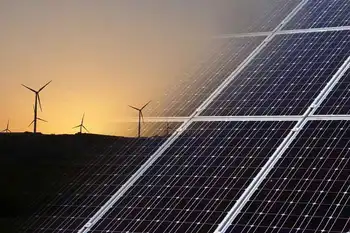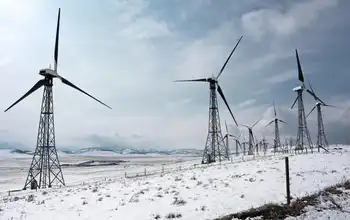Ontario to Reintroduce Renewable Energy Projects 5 Years After Cancellations

High Voltage Maintenance Training Online
Our customized live online or in‑person group training can be delivered to your staff at your location.

- Live Online
- 12 hours Instructor-led
- Group Training Available
Ontario Renewable Energy Procurement 2024 will see the IESO secure wind, solar, and hydro power to meet rising electricity demand, support transit electrification, bolster grid reliability, and serve manufacturing growth across the province.
Key Points
A provincial IESO initiative to add 2,000 MW of clean power and plan 3,000 MW more to meet rising demand.
✅ IESO to procure 2,000 MW from wind, solar, hydro
✅ Exploring 3,000 MW via upgrades and expansions
✅ Demand growth ~2% yearly; electrification and industry
After the Ford government terminated renewable energy contracts five years ago, despite warnings about wind project cancellation costs that year, Ontario's electricity operator, the Independent Electricity System Operator (IESO), is now planning to once again incorporate wind and solar initiatives to address the province's increasing power demands.
The IESO, responsible for managing the provincial power supply, is set to secure 2,000 megawatts of electricity from clean sources, which include wind, solar, and hydro power, as wind power competitiveness increases across Canada. Additionally, the IESO is exploring the possibilities of reacquiring, upgrading, or expanding existing facilities to generate an additional 3,000 MW of electricity in the future.
These new power procurement efforts in Ontario aim to meet the rising energy demand driven by transit electrification and large-scale manufacturing projects, even as national renewable growth projections were scaled back after Ontario scrapped its clean energy program, which are expected to exert greater pressure on the provincial grid.
The IESO projects a consistent growth in demand of approximately two percent per year over the next two decades. This growth has prompted the Ford government, amid debate over Ontario's electricity future in the province, to take proactive measures to prevent potential blackouts or disruptions for both residential and commercial consumers.
This renewed commitment to renewable energy represents a significant policy shift for Premier Doug Ford, reflecting his new stance on wind power over time, who had previously voiced strong opposition to wind turbines and pledged to dismantle all windmills in the province. In 2018, shortly after taking office, the government terminated 750 renewable energy contracts that had been signed by the previous Liberal government, incurring fees of $230 million for taxpayers.
At the time, the government cited reasons such as surplus electricity supply and increased costs for ratepayers as grounds for contract cancellations. Premier Ford expressed pride in the decision, echoing a proud of cancelling contracts stance, claiming that it saved taxpayers $790 million and eliminated what he viewed as detrimental wind turbines that had negatively impacted the province's energy landscape for 15 years.
The Ontario government's new wind and solar energy procurement initiatives are scheduled to commence in 2024, following a court ruling on a Cornwall wind farm that spotlighted cancellation decisions.











